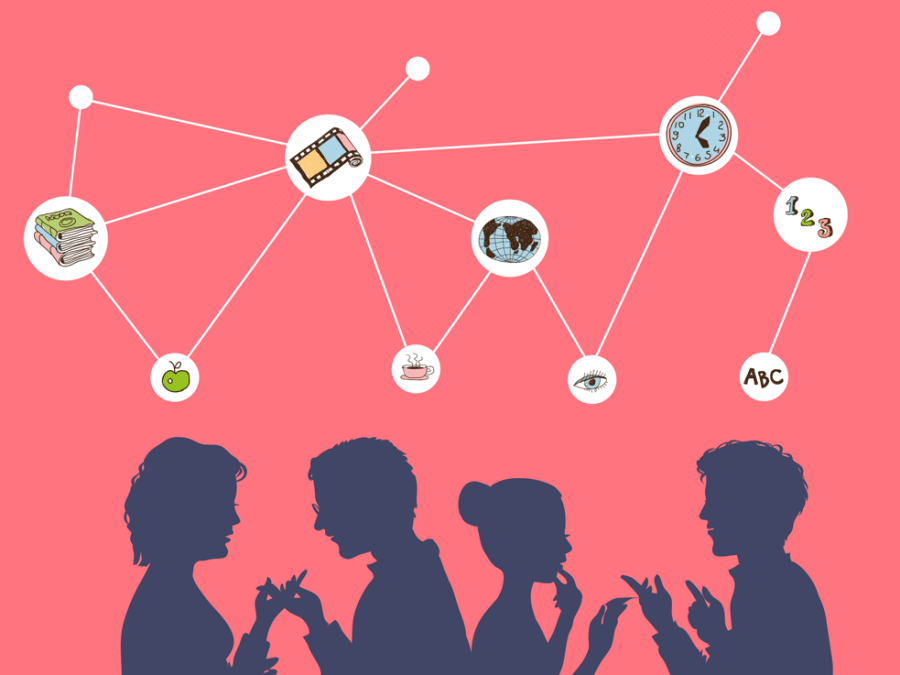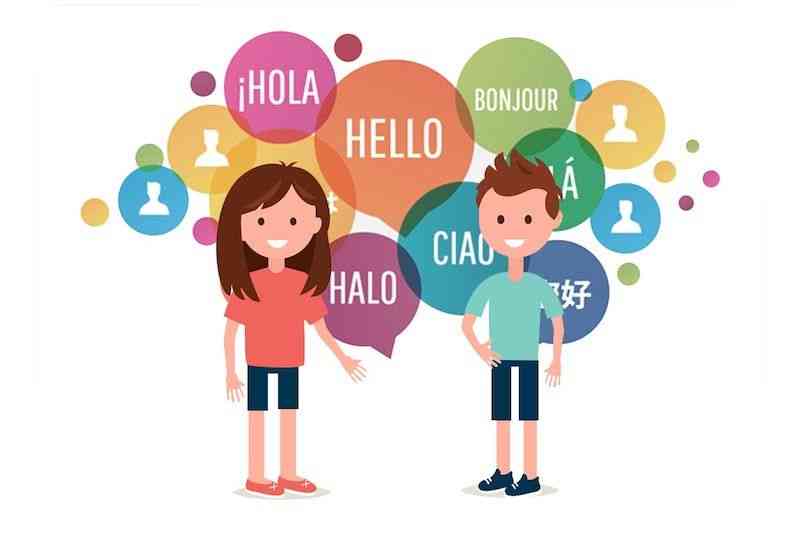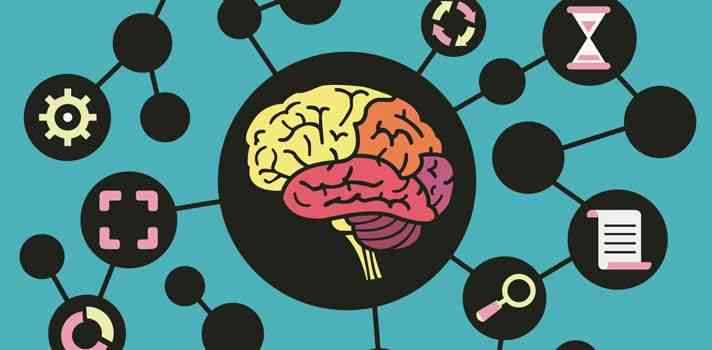How To Raise Bilingual Kids
Many parents know how to raise bilingual kids by raising the children the way they want to. The truth is that we have to know many of the most important tips that are needed when raising a child in 2 or more languages.

Learning a new language
Currently there are many academic and social benefits in learning not only one, but many foreign languages that favor a different thought from a single language and opens the mind to new cultures and languages and language forms of expressing onesembials through forms of expression different from those of a language that is managed in the same mother language.
As a fact, many families seek advice on how to raise their bilingual children by assuming that this alone is not an easy task, many families have their different methods of teaching and learning through ways to teach their children at home as in everyday life to employ a new foreign language (a second language). Learning a language other than your own is not an easy thing and if there is one thing we can be certain is that not all people have the same ability to learn new words, things or ideas through considerable effort differently or equally.
Many of the reasons for learning a language can range from:
- find a better job
- have better opportunities for a quality of life
- communicate with different cultures and ways of thinking
- learning how to open your mind to new languages
- better chances of becoming someone in the future
- travels and study exchanges

Many of the mistakes families make is to think that having a child who is likely born in a country where the natively spoken language is either French, Spanish or Italian, and parents are native to China, they think that by speaking to them in their native language the child will learn, but what happens is the opposite; A child's brain may have different ways of collecting such information when it refers to a language other than the language he or she often hears in kindergarten, on the streets, than the language that is heard at home and spoken by his parents.
Many of the families in which one parent speaks a different language to perfection refer to learning and teaching through the link that is transferred in speech to the child or to all the people who live in the house, many natives who speak to their children at home a language both at home and away tend to have a better chance of putting into practice the language they hear 100% of the times you live with the people around you.
Taking into account an example that would be that of an American mother and a Dominican father who speaks Spanish, it is taken into account that the family inhabits a country where the predominant language is English and then the language that the child tends to hear becomes the Majoritatius language and no doubt the children will be able to use the language that they usually hear most both at home at home , as away from home and will dominate it more quickly.
Many of the parents who apply one of the fundamental rules when raising a bilingual child is how the mother tongue is used to be able to transmit it and that the child's brain recognizes it as a language of its own; It should be noted that many resources have to be needed and at least 25 hours a week of only the language in which change or development is desired.

Learning a new language is a great benefit of their own and personality and even many people claim that it accelerates the mental learning process in a person, which means it helps the brain stay strong and be healthier for life.
One of the techniques that parents use is "the minority language spoken at home", this rule applies and works when the two parents who are raising the child are fully agreed and in a willingness to speak one of the languages spoken by a parent, in this case taking the previous example of an American mother and a Dominican father , Spanish is spoken only with home but when you leave home, you usually speak English as it is the language to which the brain is exposed and dominates or absorbs in a way or outra the language and the way of speaking at its finest.

The brain of the human being is a machine, and you could say that every word or thing we do is learned or can remember them because of our incredible system for remembering things or memorizing them. A clear example of this may be the books we read, the series we watch, the songs we listen to and sing with a lot of love.
Our brain is designed for any type of thinking and especially: children are the clear example that they are more likely to experience early learning to a foreign language easier than a person over 30 years old who may have some difficulty remembering things or even absorbing more than 60% of the information that is learned or collected by our brain.
Human intellect is one of the definitions that can be defined in a child or baby who is newborn and it is specifically the best ways to learn a language that help that each child can quickly and effectively absorb a new language without the need to exhaust or tire the energy or passion for a language.

Many of the benefits include the brain as the main point and responsible for activating internal mechanisms that facilitate depending on each organism a better view or angle of how each human being can observe a language. Some people believe that learning a language helps the brain to grow and in fact this statement is a myth that has been given for many years as something that people say to joke or even to affirm a fact that is not really true, just as many people claim that by learning a language we are exposed to not going crazy or to avoid dementia which is false because every organism or evolutionary system is human works and acts differently; we are not all equal and each human being lived together and differentiates ourselves in different ways and different thoughts.
Learning a language will not only help you increase better chances of understanding new cultures and new forms of expression, entire communities and friendships of different races, religions and different thoughts. A certain fact of learning a foreign language is that it builds personal trust and helps to lose the fear of some things... When we learn a foreign language we are often afraid to express ourselves or make mistakes in speaking, thinking a word, or translating and pronouncing it; in most things it all depends on how you work the language you are learning and especially whether there is love and passion for what you are learning.

Another of the most important ways when teaching a bilingual child in another language is to be consistent at home. Keeping in touch every day in the language you want to achieve a constant impact or development is by talking in it and having a certain level of conversational progress with the child so that their brains can create the first conversations without trying too hard to do it.
Living with each child is one of the best ways to get the brain to absorb everything they hear, learn, and observe; when you get to the point of speaking a native language and employing it in a way that each child has a boost through their parents can become something that helps the brain implement new ways of thinking without being focused on only a specific point "learning the language", the more a language is spoken and practiced at home even so when in the country where you live another language the child will adopt 2 languages easily as the brain is able to adapt as many languages as it wants at its own disposal with perseverance and dedication and with practice.

A new language can be challenging and on many occasions a totally different experience from other experiences, each child is more likely to learn new things and can even become smarter when they are in their premature stages and are growing as their brains are also growing and although in many cases children have a love for what they do , parents can take advantage of this by:
- video games
- favorite movies or shows of choice
- toys and teaching games at home
- interaction through dynamics for a healthy language learning
- children's music
- poems
- classic tales
- stories and legends in different languages
Considering that each language can be both easy and difficult in some cases for each child, it is worth adding that the more a language is spoken and constantly put into practice, the more results will be achieved over time due to the harvest of results through the practice and constant effort of the parents and above all : the love of languages and love when teaching each language.
Each family usually has its own teaching methods for a clear and concise learning of the language you want to try to teach but, we can take into account that in many houses the mother tongue of a child's parents is forgotten and is never practiced and this is not the best way to put into practice and recover in equal way a lost language or that you may be missing over time , one of the keys to learning a language and putting it into practice to get results is the disposition and willingness to do things, learn new words, put into practice the pronunciation of foreign words and above all do so in a safe environment and with trusted people.
Thanks for reading! :)
-Emmanuel
Subscribe if you want to get the best posts to e-mail!

